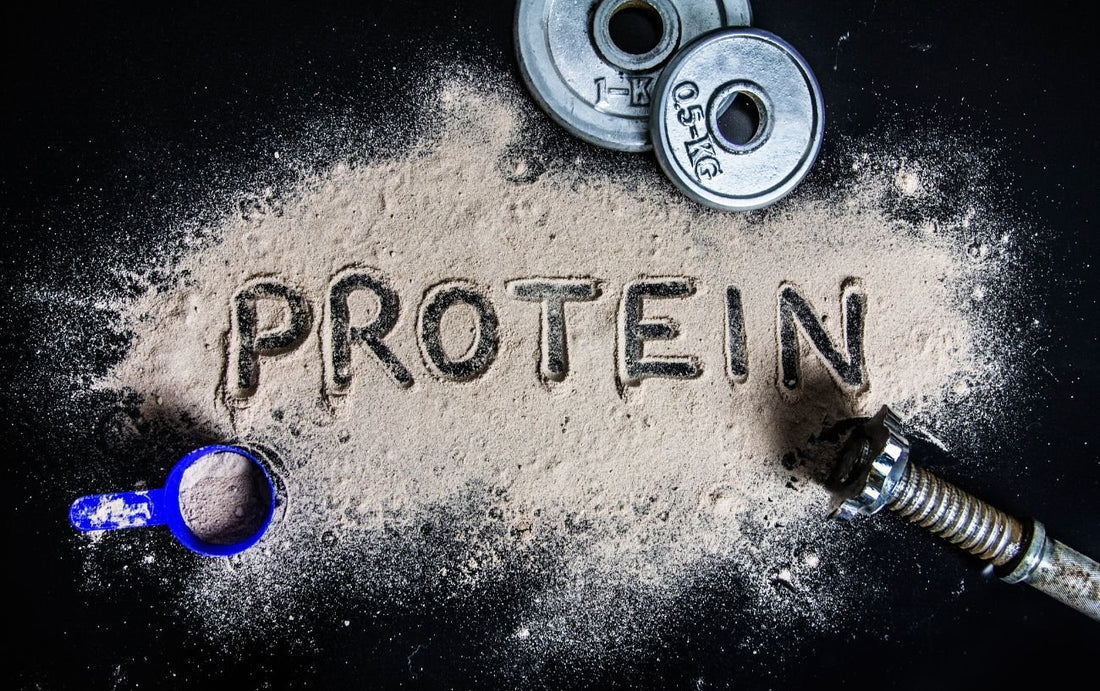

Whey protein vs. other types of protein: Which is best for your fitness goals?
Table of Contents
Are you trying to build lean muscle or maintain a healthy weight, and wondering whether you should be incorporating whey protein into your diet? With so many different types of protein powder available in the market it can be quite challenging to choose the right one for you. In this blog, we will explore what whey protein is, what makes it unique compared to other protein powders, and which type of protein is best for your individual fitness goals. Whether you are a gym-goer or just starting your fitness journey, read on to find out all the information you need to make an informed decision and reach your fitness goals.
What is Whey Protein?
Whey protein, a byproduct of the cheese-making process, is a complete protein that can be absorbed and digested easily. It contains all essential amino acids and is recommended for those looking to gain muscle or maximize workout results. Whey protein concentrate (WPC), whey protein isolate (WPI), and whey protein hydrolysate (WPH) are three different forms of whey protein, with differing amounts of protein content.
WPC contains around 70-80% protein, while WPI contains 90-95% protein and WPH contains 95-99% protein. Each form has its own advantages and disadvantages, depending on one's fitness goals. It is essential to try different types of protein and determine which one works best for you.
Types of Protein Compared
When it comes to choosing a protein source, you need to take into account your fitness goals and personal preferences. Proteins are divided into two main categories - animal-based and plant-based.
Animal-based protein, such as whey protein, are considered complete proteins since they include all nine essential amino acids, which play a critical role in muscle building and recovery.
On the other hand, plant-based proteins like peas or brown rice, usually have fewer amino acids, making them an incomplete protein source.
There are protein powders available in both animal-based and plant-based forms. Whey protein is a popular animal-based protein, whereas, plant-based proteins include pea, hemp, soy, quinoa, chia, and peanuts. It is important to note that, animal proteins score higher than plant proteins according to PDCAAS and DIAAS. It is up to you to decide which form of protein aligns with your fitness goals.
What Makes Whey Protein Unique?
Whey protein is a complete protein derived from milk during the cheese-making process, it is known for its easy digestion and absorption capabilities making it the protein of choice for many athletes and bodybuilders.
Whey protein is also known for its essential amino acids such as leucine, isoleucine, and valine, which play a crucial role in building and repairing muscles.
Branched-chain amino acids (BCAAs) found in whey protein, can help reduce exercise-induced muscle damage.
These features make whey protein unique and the best choice for building lean muscle mass; however, it all depends on the individual's fitness goals and dietary preferences.
Which Type of Protein is Best for Your Fitness Goals?
When it comes to selecting the best protein source for your fitness goals, it is essential to understand the difference between various types of protein.
- Whey protein is considered the gold standard because it contains all nine essential amino acids that your body requires for building and repairing muscles. Whey protein is available both in isolate and concentrate forms, with isolate being the most quickly absorbed option.
- Plant-based protein sources such as soy and hemp may be suitable for those with allergies or lactose intolerance.
- Soy protein is a complete protein that is particularly beneficial for vegetarians and vegans.
Research has also shown that plant-based proteins can be just as effective as whey proteins for muscle building.
So overall, the optimal protein source is influenced by several factors, including individual dietary needs and fitness goals. Therefore, both whey protein and plant-based protein sources can be excellent choices, depending on those individual needs.
Frequently Asked Questions
- Is whey protein better than other protein?
Whey protein has been shown to be a highly effective source of protein for building muscle and aiding in recovery after exercise. However, whether whey protein is "better" than other protein sources often depends on individual dietary needs and goals. Other sources, such as soy or pea protein, can also be effective for muscle building and may be a better choice for those with dietary restrictions or allergies. Ultimately, the best protein source for you will depend on factors such as personal preference, dietary needs, and fitness goals.
- What are the benefits of consuming whey protein?
Consuming whey protein can provide a range of benefits, including aiding in muscle growth and repair, improving athletic performance, and supporting weight loss efforts. Whey protein is also high in essential amino acids, which can help promote a healthy immune system and support overall health. Additionally, incorporating whey protein into your diet can be a convenient way to increase your daily protein intake. However, it's important to consult with a healthcare professional before starting any new supplement regimen.
- How does whey protein compare to other types of protein, such as plant-based or casein protein?
Whey protein is a complete protein, meaning it contains all the essential amino acids necessary for protein synthesis. It is quickly absorbed by the body, making it ideal for post-workout recovery. Plant-based proteins, such as pea, hemp, and rice protein, are also excellent sources of protein but may not be as efficient as whey in terms of absorption and amino acid content. Casein protein is slower to digest, making it a better option for nighttime recovery. Ultimately, the choice between these protein sources depends on individual dietary preferences and fitness goals.
- Can consuming too much whey protein have negative effects on the body?
Yes, consuming too much whey protein can have negative effects on the body. Excess protein can put a strain on the kidneys and liver, and can also cause gastrointestinal discomfort such as bloating and diarrhea. Additionally, consuming large amounts of whey protein may lead to weight gain and an increased risk for heart disease. It is important to consume whey protein in moderation and as part of a balanced diet. Consulting with a healthcare professional or registered dietitian can help determine the appropriate amount of protein for your individual needs.
Let’s Sum Up
Whey protein is one of the best protein supplements for fitness enthusiasts, athletes, and people who want to build muscles or recover from exercise. Although there are other types of proteins, whey protein is unique due to its high amino acid profile, fast absorption rate, and affordable cost. When considering which type of protein is best for your fitness goals, it’s essential to analyze your body composition, training routine, and dietary needs. Whether you’re looking to improve your strength, endurance, or overall fitness level, whey protein can help you achieve your fitness goals.
Get the best clinically proven and safe whey protein for all your fitness needs.



















